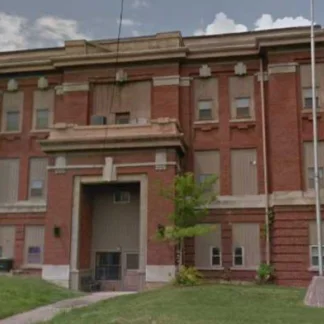East Central Missouri Behavioral Health - Arthur Center
East Central Missouri Behavioral Health - Arthur Center offers mental health tre...
Turning Point Recovery Centers strive to improve the quality of life in the individual and community by empowering people to recover from addiction. Turning Point Recovery Centers at Mexico, Missouri provide outpatient services for both men and women.
Contact us for more information: (573) 581-8828

Connect with Turning Point Recovery Centers by calling their admissions team directly.
(573) 581-8828 Website Get DirectionsThe Commission on Accreditation of Rehabilitation Facilities (CARF) is a non-profit organization that specifically accredits rehab organizations. Founded in 1966, CARF's, mission is to help service providers like rehab facilities maintain high standards of care.
CARF Accreditation: Yes
Research clearly demonstrates that recovery is far more successful and sustainable when loved ones like family members participate in rehab and substance abuse treatment. Genetic factors may be at play when it comes to drug and alcohol addiction, as well as mental health issues. Family dynamics often play a critical role in addiction triggers, and if properly educated, family members can be a strong source of support when it comes to rehabilitation.
Group therapy is any therapeutic work that happens in a group (not one-on-one). There are a number of different group therapy modalities, including support groups, experiential therapy, psycho-education, and more. Group therapy involves treatment as well as processing interaction between group members.
In individual therapy, a patient meets one-on-one with a trained psychologist or counselor. Therapy is a pivotal part of effective substance abuse treatment, as it often covers root causes of addiction, including challenges faced by the patient in their social, family, and work/school life.
Group therapy is any therapeutic work that happens in a group (not one-on-one). There are a number of different group therapy modalities, including support groups, experiential therapy, psycho-education, and more. Group therapy involves treatment as well as processing interaction between group members.
In individual therapy, a patient meets one-on-one with a trained psychologist or counselor. Therapy is a pivotal part of effective substance abuse treatment, as it often covers root causes of addiction, including challenges faced by the patient in their social, family, and work/school life.
In individual therapy, a patient meets one-on-one with a trained psychologist or counselor. Therapy is a pivotal part of effective substance abuse treatment, as it often covers root causes of addiction, including challenges faced by the patient in their social, family, and work/school life.
East Central Missouri Behavioral Health - Arthur Center offers mental health tre...
SSM Health St. Mary's Hospital - Audrain is located in Mexico, Missouri. SSM Hea...
Harry S. Truman Memorial Veterans’ Hospital - Mexico Community Based Outpatient ...
Options Unlimited is a private rehab located in Mexico, Missouri. Options Unlimi...